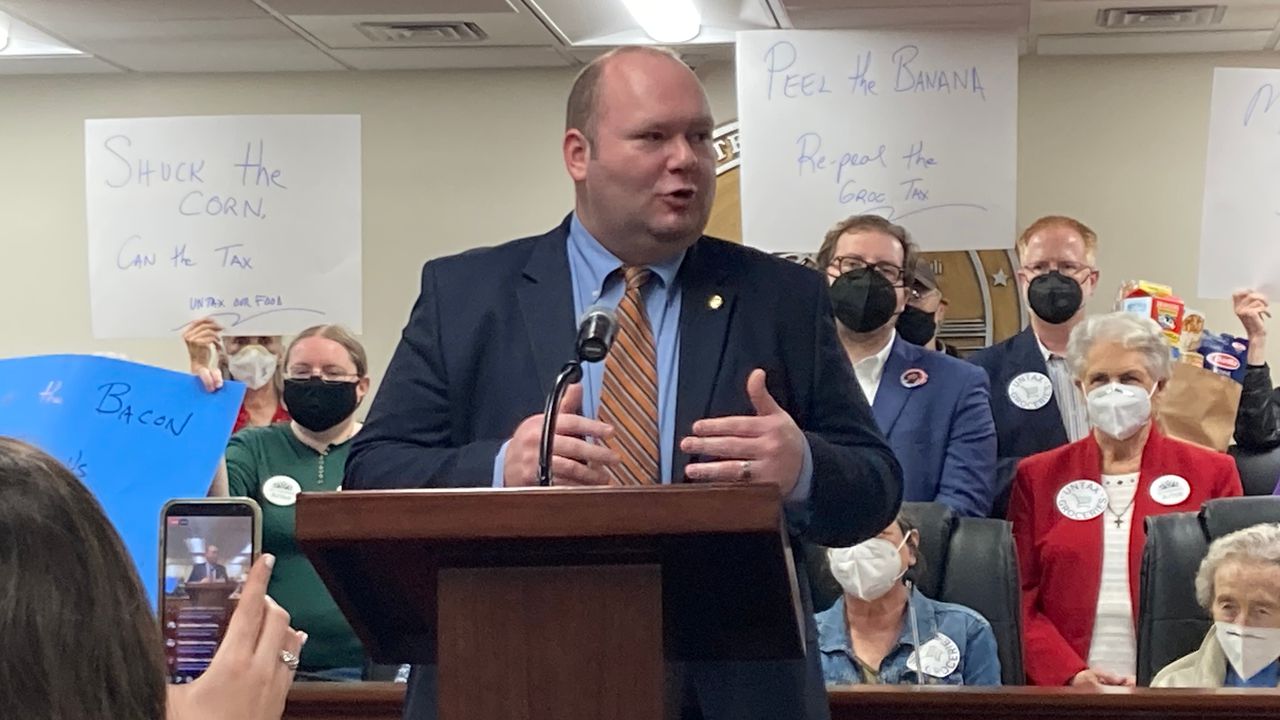Bill to repeal half of state food tax endorsed by every Alabama senator
All 35 members of the Alabama Senate have signed onto a bill to gradually repeal half of the 4 percent state sales tax on groceries.
Sen. Andrew Jones, R-Centre, introduced the bill today. The other 34 senators are listed as co-sponsors. The bill is the latest indication that support for repealing the tax on food has grown after decades of proposals that did not pass. Jones said families are feeling the pinch of inflation and said that is one of several reasons momentum to repeal the tax is growing.
“Grocery costs have just gone through the roof,” Jones said. “Taxes are a percentage of your grocery costs. Because of the cost increase due to inflation, folks are spending more than ever in grocery tax. So, it’s got a lot of traction for that reason.”
Alabama is one of only three states that collects its full sales tax on groceries. Jones said there is growing recognition of the regressive nature of the tax. Advocates, including the organization Alabama Arise, have said for more than 20 years that low-income families are hurt most by a tax on necessities.
Another factor is that the state is in the unusual position of having a surplus in the Education Trust Fund this year. The 4 percent tax on food contributes about $300 million to the ETF. That would have been about 3 percent of the $10.4 billion in total revenue that went to the ETF in the last fiscal year.
Jones’ bill calls for reducing the rate incrementally, reducing it by 0.5 percent starting Sept. 1. It would be reduced by another 0.5 percent next year and in the ensuring years until the rate reached 2 percent. The reduction would not apply during years when revenue to the ETF does not grow by at least 2 percent.
“We want to make sure we don’t negatively impact the education budget,” Jones said. “So, I think it’s done in a thoughtful way.”
Jones’ bill would apply the reduced sales tax rate to foods as defined by the federal Supplemental Nutritional Assistance Program (SNAP), also known as food stamps. Jones said that definition “includes every edible product in a supermarket except for hot, prepared foods like you might get a plate at the deli or that kind of thing. It doesn’t include your toothpicks and Band-aids and toothpaste and all that kind of stuff.”
Jones said the average family would save an estimated $200 to $250 a year when the tax is reduced to 2 percent.
“It’s going to be huge for Alabama families,” Jones said. “I represent a lot of rural areas with some food deserts in places that people struggle to get food, fresh food, get food on the table. This is going to help people afford their groceries, put food on the table.”
Sen. Arthur Orr, R-Decatur, chair of the Senate’s education budget committee, has proposed a bill to phase out the tax on foods that are included under the federal Women, Infants, and Children (WIC) program. Jones said the WIC definition is too narrow and excludes many foods that a typical family relies on.
Jones praised others who proposed repealing the grocery tax years ago, including former state Reps. John Knight and Thad McClammy, both Democrats from Montgomery. He said the support of Lt. Gov. Will Ainsworth for the idea has been important.
Today is the 15th meeting day out of a possible 30 meeting days in this legislative session. Jones said he believes there is time to pass the bill.
“We’re going to work to get it moving as quick as we can,” Jones said. “Work with our folks in the House. I was very thrilled that we have all 35 senators signed onto the bill. With 35 senators, a lot easier to move things and get it done.”
Read more: Why Alabama might not be the last state to cut the sales tax on groceries
83% of Alabamians want to do away with sales tax on food, GOP poll shows
The Associated Press contributed to this report.
